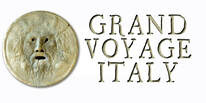|
First things first. Yes... "Espress" your love. Sitting across from each other with an invigorating espresso. Staring into each others' eyes. Memorizing every detail of that face. A sip and a sigh. It's just the beginning of the language of love in Italia... What do you call people engaged in amore? A boyfriend is a Fidanzato. The girlfriend is a Fidanzata. When both get engaged they are Fidanzarsi. Two lovers together are called La coppia--the couple. The lovers are called gli amante (the lovers) or simply amante. Ok, so you meet someone interesting and want to go on a date... The simplest was to ask is, "Vuoi uscire con me?" (Do you want to go out with me?) The date itself is called un appuntamento. When things start to go more romantic, you go on un appuntamento romantico. If someone stands you up for your appuntamento, they call it dare buca--giving one the hole or leaving someone in a hole. Here are some other phrases to learn in the event that you are looking for Love--or if Love finds you--in Bella Italia...
If you enjoyed this post, please share it with your friends... ciao! --Jerry Finzi 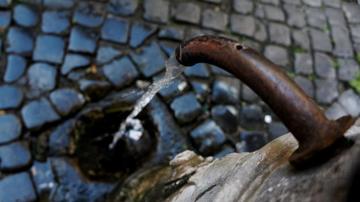 Originally installed in 1874, there are apparently more than 2500 of them... the Nasoni (Big Noses) supply fresh water to the public in Rome. The nickname was given because of their spouts' resemblance to a larger than normal nose. Within the Aurelian walls of Rome there are over 250 of them for your use. And have no fear... this water is perfectly fine for drinking--cold and fresh. In fact, using the nasoni is a great way to save on price gouging that goes on with refreshment street vendors, who charge overly high prices for bottled water. Trust me, it can be very hot and humid in Rome--even in the "cooler" spring and fall. Never go anywhere without a water bottle. Filling your own, reusable sport bottle is the way to do it in Rome. Don't waste money on bottled water. 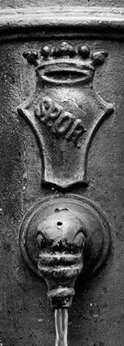 The nasoni are beautifully designed. The 200 pound, cast iron fountains stand about 3 feet tall, with distinctive spouts supplying a continuous stream of potable water. That's right, it flows all the time. Romans call it l’acqua del sindaco (the mayor’s water), since the government maintains the water flow. The older nasoni have a dragon's head at the end. Newer ones have a smooth torch decoration. Some older ones have three spouts while most have one. Please don't be put off by the rust or minerals built up at the base of the nasoni--the water is perfectly pure. All of the nasoni bear the shield of Rome with SPQR emblazoned on it. This is from the Latin phrase from Ancient Rome: Senātus Populusque Rōmānus (The Roman Senate and People). Today, this is the official emblem of the modern Roman government. 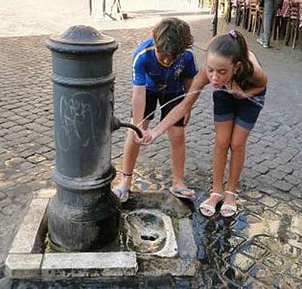 The nasoni also have a little known secret--at least tourists don't seem to know about it... On top of the spout (the nose) there is a small hole that can turn this faucet into a drinking fountain. The trick is holding your hand (hopefully clean) under the open spout, plugging it up. This forces a little water jet to pop out of the small hole on top, allowing you to drink as you would from a modern drinking fountain. (It's customary to rinse your hands before doing this in an effort to keep the spout clean.) Just hold your hand steady as you drink, or you might get sprayed in the face! Watch the cute video below... this bellissima bambina explains it so well. Roman pooches really appreciate lapping up a cool drink Here is a LINK to an interactive map of Rome that can help locate nasoni. There are also over 1000 fontanelle (drinking fountains) scattered around Rome
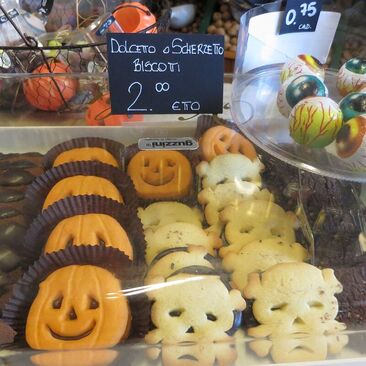 Many Americans think there isn't a holiday like Halloween in Italy... but there is. On November 1st, Italians celebrate La Festa di Ognissanti, or All Saints’ Day. This is a national holiday when post offices, banks, and schools close, as well as being a Catholic holiday honoring all of the saints, martyrs and ancestors who have gone before. Italians will decorate and light up their cemeteries for Ognissanti, but in recent times they also carve pumpkins and even dress up for local festivals. A common tradition is to for a family to visit the cemetery after a special feast, to visit the members of family passed, leaving a tray of food for them to enjoy at their tomb. This visit leaves their home empty so that the dead could come back for a short visit, but without either the living or the dead disturbing each other. Families return to their homes and the dead return to their graves after church bells are tolled. Depending on the region of Italy, some burn bonfires and kids might do something like Trick or Treating from home to home (chanting "Morti, Morti") and receive treats. There are many variations throughout Italy, some even predating Halloween traditions. Many leave food out all night in case the dead want to come back home and feast while they sleep. Here are some Italian words to tide you over during this interesting holiday... 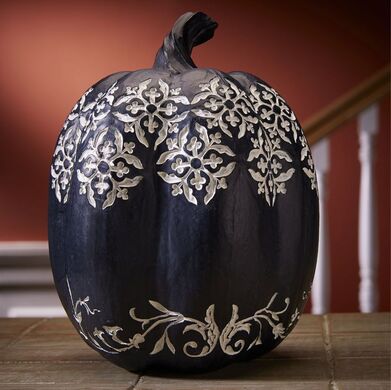 Una Strega - Witch Scopa - Broom Pipistrello - Bat Ragno - Spider Osso - Bone Cranio - Skull Grondone - Gargoyle Spaventoso - Scary Sinestro - Scary Diavolo - Devil Vampiro - Vampire Fantasma - Ghost Foletto - Goblin Mostro - Monster Lunu Mannaro - Werewolf Frankenstein - Frankenstein Zombie - Zombie Mummia - Mummy Casa Infestata - Haunted House Zucca - Pumpkin Jack-o-Lantern - Jack-o-Lantern Costume di Halloween - Halloween Costume Dolcetto o Scherzetto - Trick or Treat Morti - The Dead Before I voyaged to Italy, I wanted to learn phrases that weren't the standard tourist expressions. I wanted help in the day to day situations that would arise... to assimilate into Italian life with "street language", possibly even including some well-chosen curse words. I've always held the belief that when traveling in a foreign country, one should make a decent attempt in learning at least some of the language. It's the polite thing, with the added benefit of not sounding like an arrogant "ugly American" tourist, but as a more seasoned World Voyager. I can still recall an Ugly American years ago in rural, central France demanding in an overly loud voice, "I would like some PLAIN bread!"... sheer embarrassment. For example, one of the more helpful non-tourist Italian expressions I learned was "Va Via!" (Hit the Road!) This became invaluable when being hawked by aggressive street vendors, beggars, scammers or someone trying to rob us. I used it several times with great success--they backed off and were given the impression that I was a confident local and not an easy mark, tourist. It was just as effective as in Paris when I felt a hand in my shoulder bag and yelled "Voleur!" (Thief)... drawing the French people's attention to the thief, causing him to flee. Sounding like a local is a real benefit and boosts your confidence when traveling. I've listed some expressions which are well worth learning for your next Voyage to Italy. And don't be shy about trying to sound Italian when pronouncing the words. Years ago when learning French, I imagined a mix of Maurice Chevalier (of "Every leetle breeze seems to wheesper Louise" fame) and Charles Boyer (for a deeper, sexy voice) when I spoke. Hey, it must have worked, because although I admit to speaking very poor baby-talk French, and I'm not that great at one-on-one personal conversations, at least my accent est très bon. A vendor in Paris, after asking where I was from said in surprise, "Ahh... but I took you for a Frenchman!" High praise indeed from a Parisian selling necklaces in a flea market. 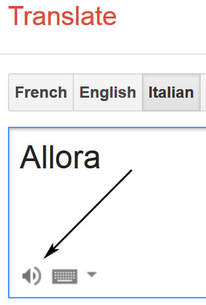 Click on the link for each below to hear the pronunciation When the Google Translate window pops up, click on speaker icon under the Italian phrase to hear the pronunciation. Try to mimic your favorite, sexy Italian TV chef (Fabio? Luca?) when you pronounce these phrases. Use your best Italian accent and you'll do fine... Allora - This is used a lot in casual conversation as a pause to allow the speaker time to think of his next thoughts. It is used like "then", "oh well...", "therefore", "Mmmm, let me see... ". Examples: "Allora... tutto bene." (You see... Everything is fine); "Allora...prendo un risotto Milanese." (Let's see... I'll have risotto Milanese.); or after someone does something nice for you, you can stretch it out a bit and say "Allora, mille grazie!" (Well then, a thousand thanks!). Boh! - More of an exclamation for "I don’t know”, "I don't care" or "I don't want to hear it". It expresses your disinterest ambivalence toward the subject of discussion. The closest thing in English is “meh”, but Italian's use this a lot. Avete le mani d'oro - "You have gold hands", meaning the person is gifted in using his hands, as when complimenting a local artisan. Attaccalo al chiodo - Literally, "Stick it to the nail", meaning "forget about it" "leave it for later". Leccapiedi - A toadie, a boot-licker, a brown-nose--An ass kisser. They have them in Italy, too. Olio di gomito - Literally, "oil from the elbow. Referring to an exertion of physical labor, as we use "elbow grease". La mia macchina è in panne - Literally, "my macchina (car) is creamed". This is used to describe something broken, as in "Mia macchina ha una panna, allora prendo un taxi." (My car is broken, in that case I'll take a cab.) Che ne so - Used as a sarcastic response to someone asking something that you don't (or couldn't possibly) know. A gesture typically accompanies this phrase... a shrug of the shoulder along with wavering hands turned toward the sky as you shake your head "no". Use it as we do when we say "How in heck should I know?" rather than the more precise and formal "Non lo so" (I do not know). Non mi va - This means something like "It doesn't go with me" and is used when someone suggests something that you don't or won't agree to. Use it casually as you would say "I don’t feel like it", for instance if someone suggests a restaurant that you wouldn't like, or with a stronger voice if you are trying to get rid of a pushy vendor or hawker on the street trying to sell you something that you'd never buy... "Allora... Non mi va!". Kids will say it to get out of doing what their parents tell them to do. In bocca al lupo - Literally, "in the wolf’s mouth". Used to wish someone good luck, meaning to aim into the wolf's mouth to kill it (the wolf represents the difficulty they are facing). When wishing someone will overcome something more serious, use "crepi il lupo", literally, "Croak the wolf!". Sort of like when we say to someone "You'll beat it" or "You'll kill it". Always use this when wishing someone Good Luck. Neanche per sogno - Literally, "Not even in (your) dream". Used to slap back someone's offer or when you don't agree with a suggestion, such as "Not in your wildest dreams" or simply "No way!". Sono stanco - Literally, "I'm weary (tired)". Use after a long day of walking around tourist sites, such as "Sono stanco. Troppo a piedi. Ho bisogno di gelato freddo!" (I'm tired. Too much walking. I need a cold gelato!") Magari - This is slang for "maybe" or perhaps "if it could only be true". You could use it expressing hope to win the Lotto or meeting the perfect mate, or "Voglio avere figli... magari" (I want to have children... I could only wish.) Ogni morto di papa - Literally, "Every Death of a Pope", used the same as "Once in a blue moon". Make sure to accent "Papa" correctly... accent on the first syllable (PA-pa). If you say "pa-PA" you are taking about your Dad. Salve, come va? - Literally "Hello, how’s it going?" The more formal way is to ask "Buongiorno, come stai?"(Good morning, how are you). It’s a less formal way of greeting someone, but use "come sta" in formal or business situations. Galeotto fu il libro - "Jailbird was the book"... an odd expression referring to matchmaking two people. Perhaps referring to when a guy gives a girl a book (a present) they'll become imprisoned--in love. Some of the roots behind these expressions are really difficult to comprehend. Promettere mari e monti - Literally, "Promise the seas and mountains". Used like "Promise Heaven and Earth". Examples: "Non mi prometti mari e monti" (I am not promising Heaven and Earth" or "Mi ha promesso mari e monti" (He promised me Heaven and Earth"). Non chiedo la luna - "I'm not asking for the moon". Used when frustrated with someone complaining about a simple request. One of the more useful expressions to make your request in a restaurant or hotel seem like it's coming from a more seasoned Voyager who can't be taken advantage of. (I wish I knew this one when picking up rental cars at Hertz!) Andare a monte - (ahn-DAR-eh a MOHN-teh) - Literally, "Go to the mountain", but it figuratively means that everything went downhill and failed. Examples: Un viaggio va a monte (The trip was called off); Il matrimonio è andato a monte (the marriage failed). Use to describe something that went awry or got fouled up. Ho peli sul mio stomaco - Literally, "I have hairs on my stomach", meaning you're not taking something seriously or that it's not bothering you. Ne ho fin sopra i capelli - Literaly, "I'm sick up to my hair". Use it the same as "I’ve had it up to here" or "I'm fed up to here" or "I'm sick and tired". You can use a hand gesturing to the top of your head with this. Capitare su un osso duro - Literally, "Happen on a tough bone". A pejorative. Use it referring to dealing with a tough cookie. A person who is "un osso duro" (a tough bone) is a bit thick and stubborn. You can also use "capo tosto" meaning "thick (tough) head". A hand motion goes with this... knocking your knuckles or fist on a table as you say it. Dare del filo da torcere - Literally, "giving a twisted thread". Think of a small, precocious child asking "Why... Why... Why" no matter how many times you give an answer. "Torcere" means to Twist. They’re never satisfied with your answers. To tell someone about your daughter's quizzical nature, you could say, "Mia figlia mi dà del filo da torcere" (My daughter gives me a hard time). In the positive, you might also use this to describe how smart and curious your kid is because he asks many questions. Essere in alto mare - This is a common phrase used when someone has procrastinated and discover that they are behind on a project. It literally means that you are in deep water with a long way to go before getting finished. Mi fa cagare! - Instead of the much more polite "È orribile" ("It's awful!"), Italians will say bluntly, "It makes me poop," . So, when taking about "That restaurant? Mi fa cagare!" "Her new dress?! Mi fa cagare!" "That new American singer? Mi fa cagare!" Mi sento le mani prudono - Literally, "I'm feeling itchy hands" means you feel like hitting someone... you're pissed off. Be careful how you use this. Figurati! - Literal, "Imagine (that)!", used as "Don't worry about it!" or "It's nothing!" You can use this in both positive or negative ways. "Thanks for a great meal... Figurati!" or when to act innocent and blameless when you've just dented someone's fender who just cut into your lane, "I'm so sorry I ran into you... Figurati!" It's like saying "mi scusi" (excuse me) without really meaning it. Dai! - This simply means "Come on!" as in, "Please, you can't deny me." When someone refuses your suggestion to go have a drink, you say "Dai!" along with a motioning hand gesture toward yourself. You can also use it to try to stop someone from doing something negative. "Why are you pushing me? Dai! Wait your turn!" Meno Male! - Literally, "less bad." Oh, HE got elected? Meno Male! As long as that other jerk didn't win!" "I passed the test? Meno male!" Che palle! - This is a rather crude, but everyday expression meaning, “what balls!” or "what a pain in the ass!" but stronger than "what nerve!" Ho perso il mio portafoglio. (I lost my wallet.) Che palle! (What a pain!) Grazie a Dio! - "Thank God!" used the same way we use it to express great relief. Always include the "a" (meaning "to")... "Thanks to God" otherwise, you would be thanking God directly. Che guastafesta - Roughly translates as "What a party pooper". Guastafesta is a combination of two Italian words: the verb guastare, “to spoil” or “to ruin,” and the word festa, which means “party.” Use it when anyone is putting a damper on your fun or a monkey wrench into your plans. Ma, che sei grullo? - Used more in Florence, literally "But, how stupid are you?" It's used like "Are you kidding?" or "Are you crazy?" to friends. Say it to a stranger and you might get in trouble. Example: "I'll pay for dinner." Response, "Ma, che sei grullo?" or "You paid that much for those shoes? Ma, che sei grullo?" Scappo! - Slang for "escape" or "I'm gone" or "I'm outta here!". Basta! - Literally, "Enough!". This can be used in simple ways, like telling a waiter when he's put enough pepper on your dish, or more forcefully when someone is BS-ing you, as in, "Basta! Non voglio sentire altre scuse!" - "That's enough! I don't want to hear any excuses!" Can be combined with above... "Scappo! Basta!". A fagiolo - Literally, fagiolo means “bean,” but the phrase a fagiolo (“to the bean”) means something like the English “to the letter” or “to a T.” It indicates to someone that you are expecting precision from them. Ti scureggia il cervello - Use this only with friends, or when you really want to insult someone. It means, literally, "your brain is farting". A Roman expression. Cazzata - Literally "Crap!" or perhaps a bit more blunt, as it's derived from "cazzo" (f*ck). Used when you get a whiff of someone's BS. Or to scold yourself when you said something crappy or stupid, "Dio, ho detto una cazzata," meaning, "God, I said something f*cked up." Figo - Slang for "Cool", meaning something great or nice. Used to describe things or people. End it with an "a", "Figa" can also describe a cool (or rather, "Hot)" female, but be forewarned, the word "figa" is also used as a very crude reference to a woman's vagina (similar to "c*nt"). A "figata" is something that is cool or great--used as the opposite of a "cazzata." Mannaggia - Used as "Damn!" or combined as "Manageria miseria"--"Damned misery!" Used to express utter frustration with someone, something or a frustrating situation. Zitto - Slang and abrupt was to get someone to keep quiet. "Zitto!" or "Stai zitto!" means "Shut up!" or "Shush!" I hope you'll put some of these expressions to good use during your next Voyage to Italy. This was a long post, Sono Stanco! If only I had someone else to write these posts for me... magari! Scappo! --Jerry Finzi If you found this article useful, post links to it all around the world, in every country, in every forum, in all the schools, in the houses of Congress, on the plains of Africa, in New York, Paris, Rome... er... Forget it. Just LIKE and SHARE it... pretty please? 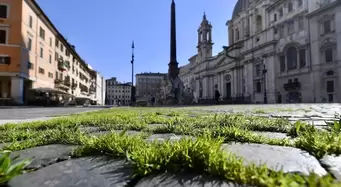 Will Piazza Navona become a lawn? Will Piazza Navona become a lawn? Today, April 22nd is Earth Day's fiftieth anniversary. In Italy, Earth Day is called Villaggio per la Terra (Village for the Earth), along with the philosophy that it does take a village to heal Mother Earth. As we humans are battling the COVID-19 virus, we find the opposite with Mother Nature... she is healing herself while we all stay at home, stop driving our vehicles and factories and businesses slow to a halt. We are using gasoline at such low levels that this week crude oil prices were became literally worthless--trading prices went under one cent per barrel! The air has 45% less carbon emissions since our world-wide stay-at-home began. Rivers and the sea are looking cleaner, evidenced by the canals and lagoon of Venice suddenly becoming clear, with jellyfish and dolphins swimming around. Wild boars and goats roam the streets of Italian towns. All over Italy you can see the change--Nature taking over. In the empty Piazza Navona, grass has even started growing! And perhaps the waters of Venice are a bit clearer considering the usual number of 30,000 tourists a day dumped onto its islands are gone and not using the toilets, which in many cases, drain directly into the canals. Cruise ships alone release over one billion gallons of sewage into the ocean every year! And for now, at least, they've stopped. Will there be lessons learned from less driving, less cruise ships and less tourists all battling to occupy the same "must see" spots in Italy and around the world? Time will tell... Happy Earth Day, tutti! --Jerry Finzi Watch the video below to see how the air pollution over Italy and Europe has lessened during the COVID-19 shutdown.... The Physical Closeness of the Italian People One of the most obvious cultural events a visitor to virtually any town or village in Italy notices is a simple one: la passeggiata--the evening stroll. This isn't really an event. It's a cultural, daily habit of the Italian people. Instead of staying in each evening, families, friends and neighbors venture out and stroll together in the largest viale, piazza or strade principali. They stroll for social reasons. To be seen and to see. To stop with neighbors and listen to the latest political news or local gossip. They dress their best, as is the custom of la bella figura. They show off their new clothes, shoes or hairdos. They will see how pregnancies are progressing and show off how well the bambini are growing and flaunt their new puppy. Young teens fare la civetta (make like an owl, or flirt) and older singles check out who is available and perhaps meet up for an aperitivo in a street side cafe or some gelati. Both men and women will stroll arm in arm. When neighbors and cousins or school friends meet, they embrace and kiss, not once, but twice on both cheeks. They talk with their hands, often very excitedly, waving arms and making both subtle and dramatic arm and hand movements, oven combined with facial expressions or huffs and puffs. This is the language that runs the length of the boot from North to South. The Morning Ritual Each morning, millions of Italians have their breakfast standing up, shoulder-to-shoulder in local bars. The bar in Italy is not what you think. While they do serve a certain amount of wines and spirits, they are the place where Italians have breakfast: espresso and a sweet bread or tart, the most popular being a the crescent shaped cornetto. They have tarts, cakes, breads, and even sandwiches or pizza for lunch. They sip their strong espresso or cappuccino and have a morning snack while reading the paper or chatting with neighbors or work-mates. This is a social event at the beginning of each day. Long Lunches at Home Most Italians don't have lunch in restaurants. Most simply prefer to go home for riposa, that 3 hour lunch period from 12 noon until 3pm. Traditionally, pranzo (lunch) is considered the most important meal of the day. Even if they wanted to go to a restaurant for lunch, unless they are in a large city, like Rome or Florence, restaurants are also closed at noon. Italians prefer to spend the hot midday with close family at home and prepare hearty meals, and resting before returning to work. This affords even more hours that la famiglia spend together in close quarters... unlike Americans, who barely eat dinner together at the dinner table. Closeness of la Famiglia Another type of closeness is la famiglia itself. Although the average number of children Italians have is two, la famiglia living in one house or apartment are larger than you might assume. Aging family members in Italy are usually taken care of by younger generations, with sometimes as many as three generations living together in the same house--Nonna and Nonno, Mama and papà, i bambini and sometimes even an aunt or uncle or two. On weekends, extended families get together for pranzo di Domenica (Sunday lunch), either at a relative's home or a local agriturismo. When they eat outside the home, they all gather at long, family style tables, often seating 15-20. Often the meals are communal, served up in large trays or bowls, portions spooned out as needed. On some special holidays, such as during Natale, communal recipes like Polenta alla Spianatora is served on a bread board, with family members scraping polenta and sausages directly from the large board with their own forks. Crowded Sagre, Festivals and Events All throughout the year, regardless of season or region, there are literally thousands of festivals and sagre (food themed festivals) in Italy. Some estimates put the number of sagre at over 42,000! There are celebrations for nearly every type of cheese, wine, nut, berry, meat and pretty much everything else that can be grown and turned into something to eat, and nearly every type of animal: almonds, prosciutto, oranges, wild boars, donkeys, horses, Grappa, bread, pasta, chocolate, olives, fish... you name it, and there's probably a sagra to celebrate. As in the photo above, many events employ long family style tables for friends and strangers to dine together in the streets. 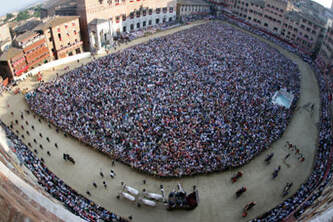 The crowds at the Siena Palio The crowds at the Siena Palio Then there are thousands of events like the Palio in Siena, that insane bareback horse race where 17 neighborhoods compete. Over 40,000 people jam pack into the Campo to experience this race. Then each contrada (neighborhood) have communal dinners for thousands on the streets. Take this one event and multiply by literally thousands... all over Italy, Sicily and Sardinia. People communing together, shoulder to shoulder. Living, loving, eating, drinking, dancing, soaking in la Vita Bella. Imagine how crowded the Venice and Viareggion carnevale are each year. Now picture the seasonal markets. And the New Year's Eve crowds and rock concerts. Over 60 million Italians crushing, standing, chanting, singing, eating, marching... tutti insieme (all together). Italy Has a Vulnerable Elder Population In fact, Italy has nearly 20,000 people over 100 years old and has held the worlds record for the oldest living human nearly every year for the last couple of decades. Italy also has the second highest life expectancy in the world, too--at 83 years young. The reasons for this aging population are varied. The Mediterranean diet, hills and steps keep people in general good health. People tend to retire earlier, giving a more relaxed, stress free lifestyle to the elderly. The midday riposa offers a way the oldest family members can still share in a meal and visits with younger family members, which we all know provides a healthy family environment. They often live with their children and play and hug their grandchildren, who we now realize might carry the COVID-19 virus without symptoms and pass it on to the older family members. Without the stress of how older people are going to have health care (there is national healthcare in Italy), Italians feel comfort in knowing that if something bad happens to their health, they will be taken care of, for little or no cost. The one factor that might actually make the aging population more vulnerable to COVID-19 is the fact that many still smoke. There are far too many smokers in Italy in all age groups. COVID-19 does well in patients with compromised lungs. But of course, people living to healthy old age is not the reason why many might succumb if they contract the disease. This virus is different and powerfully and quickly attacks the vulnerable. We should applaud the Italians living to ripe old ages, if only that they made it in a vivacious, healthy way. They often live with their children and play and hug their grandchildren, who we now realize might carry the COVID-19 virus without even knowing. Ferragosto, the National Vacation Then there's vacation time. Italians don't stagger their summer vacations over three months like Americans. Most of Italy shuts down for Ferragosto in August, the month-long holiday season when Italians head for their campers or beach bungalows and crowd the beaches along its 4,723 miles of coastline. They literally pack the beaches and campsites or head up into the cooler mountains. During summer, there are thousands and thousands of major and minor concerts from the Veneto to Tuscany to Campania and Puglia. Indoor concerts, outdoor concerts, music festivals in rock, folk, opera, jazz... you name the music, there's a festival to suit any Italian's musical tastes. Can the Spread of COVID-19 be Really Blamed on the Culture?
I would argue, no. How can anyone blame a culture for doing what comes naturally? Italians are gregarious. They have close knit families. They love to hold festivals for just about anything God has graced their land with. They hug and kiss and walk arm-in-arm. COVID-19 has taken all of this away from them--at least for now. But you can see the evidence of of Italians sharing even this in a joyful way by banging pots and pans on their balconies... and by making music with all sorts of instruments, again, from their windows or balconies. They sing Bella Ciao together as the WWI partisans did several generations before. They sing their national anthem. They light candles. Even though they are apart, they are together in wearing masks and gloves and battling this unseen enemy, as they have done in the past for thousands of years. They are partisans. The closeness of Italians is not to blame. The emotional closeness and comraderie of the Italian people are the cure for what is ailing them. Andrà Tutto Bene --Jerry Finzi One of my neighbors--a retired respiratory therapist--posted his "Common Sense" advice on what to do if we come down with initial symptoms that might be COVID-19. His text follows: COVID-19 -- THIS IS ADVICE FROM A RESPIRATORY THERAPIST CORONA Common Sense Since they are calling on Respiratory Therapists to help fight the Corona virus, and I am a retired one, too old to work in a hospital setting, I'm going to share some common sense wisdom with those that are trying to stay home. If my advice is followed as given you will improve your chances of not ending up in the hospital on a ventilator. This applies to the otherwise generally healthy population, so use discretion. 1. Only high temperatures kill a virus, so let your fever run high. Tylenol, Advil. Motrin, Ibuprofen etc. will bring your fever down allowing the virus to live longer. They are saying that ibuprofen, Advil etc will actually exacerbate the virus. Use common sense and don't let fever go over 103 or 104 if you got the guts. If it gets higher than that take your Tylenol, not ibuprofen or Advil to keep it regulated. It helps to keep house warm and cover up with blankets so body does not have to work so hard to generate the heat. It usually takes about 3 days of this to break the fever. 2. The body is going to dehydrate with the elevated temperature so you must re-hydrate yourself regularly, whether you like it or not. Gatorade with real sugar, or Pedialyte with real sugar for kids, works well. Why the sugar? Sugar will give your body back the energy it is using up to create the fever. The electrolytes and fluid you are losing will also be replenished by the Gatorade. If you don't do this and end up in the hospital they will start an IV and give you D5W (sugar water) and Normal Saline to replenish electrolytes. Gatorade is much cheaper, pain free, and comes in an assortment of flavors 3. You must keep your lungs moist. Best done by taking long steamy showers on a regular basis, if your wheezing or congested use a real minty toothpaste and brush your teeth while taking the steamy shower and deep breath through your mouth. This will provide some bronchial dilation and help loosen the phlegm. Force your self to cough into a wet wash cloth pressed firmly over your mouth and nose, which will cause greater pressure in your lungs forcing them to expand more and break loose more of the congestion. 4. Eat healthy and regularly. Keep your strength up. 5. Once the fever breaks, start moving around to get the body back in shape and blood circulating. 6. Deep breath on a regular basis, even when it hurts. If you don't it becomes easy to develop pneumonia. Pursed lip breathing really helps. That's breathing in deep and slow then exhaling through tight lips as if your blowing out a candle, blow until you have completely emptied your lungs and you will be able to breath in an even deeper breath. This helps keep lungs expanded as well as increase your oxygen level. 7. Remember that every medication you take is merely relieving the symptoms, not making you well. I've been doing these things for myself and my family for over 40 years and kept them out of the hospital, all are healthy and still living today. Thank you all for sharing. We gotta help one another. --Neil Azloran, RRT GVI's ADVICE:
Although Azloran's advice does have some great tips, please... IF YOU ARE UNCERTAIN ABOUT HOW SERIOUS YOUR SYMPTOMS ARE, CALL YOUR HEALTH PROVIDER or DOCTOR AND FOLLOW HIS ADVICE AS QUICKLY AS POSSIBLE! Yesterday, Pope Francis preached to an empty piazza in front of Saint Peter's basilica in Rome... "For weeks it seems that evening has fallen. Dense darkness has thickened on our squares, streets and cities; they took over our lives and we found ourselves afraid and lost, taken aback by an unexpected and furious storm. We realized that we were on the same boat, all fragile and disoriented, but at the same time important and necessary, all called to row together."
When I started the Facebook Group Garden of the Finzi Famiglia, its intent was to bring together the multitude of people in the world with the Finzi surname. In the beginning, it was a way for me to search for my actual genetic roots and perhaps meet some long lost cousins along the way. Among our 225 active members, all named Finzi (or a variant), I have succeeded in finding my Catholic, Finzi cousins with whom I share a common DNA, all originating from the town of Molfetta, Puglia where my father was born. But there are other, larger branches of what I call la Famiglia Finzi, many whom are Jewish, and can trace their heritage back to the time of the Medici in Northern Italy. Although my small branch is special to me because we are related by blood, I also feel like a "cousin" to all of the many hundreds of Finzi that I have become online friends with, from Italy to England, Brazil and Argentina, the U.S. and France, Norway, Tunisia and beyond. Through our Garden group, we have all found commonalities and feel like extended cousins.  But the reason I am writing this post is to celebrate the life and passing of one particular Finzi... Doctor Giuseppe Finzi, professor of vascular diseases and head of the Day Hospital at the University of Parma. Beppe, as his friends called him, was also author of over 60 publications in national and international scientific journals, was a member of the Italian Society of Internal Medicine and was very active in Italian politics. This past Wednesday, we lost Giuseppe as he was fighting on the front lines of the coronavirus Italian crisis. His underlying health issues made him an easier target for the terrible coronavirus, taking him only a few days after he was first diagnosed. We mourn this amazing Finzi. He held the name proudly and was actually able to trace his family tree back 1000 years. He was one of a long line of doctors, rabbi and teachers throughout the history of this noble Jewish Finzi family line. 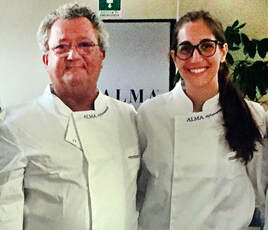 Giuseppe and Daughter Giuseppe and Daughter His humor, smile and hugely generous personality was loved by thousands who knew him. He was a perpetual volunteer for charitable programs, a sailor, a chef, a dog lover, a sun-worshiper, a passionate soccer fan, and one-time candidate for mayor of Soragna, his home town. One of his recent pet projects was a healthy cooking program for at-risk young women where he enjoyed donning the chef's toque and jacket. His passing brings the number of Italian doctors lost during this crisis up to 13. Giuseppe Finzi was 62 when he passed. Our condolences to his family and wife of three years, Daniela. --Jerry, Lisa and Lucas Finzi "Not only did he participate in every activity, but he always found a way to make himself useful", says Riccardo Moretti, president of the Jewish Community of Parma. "A pure person, a friendly face that all of us will miss."
Our dear Mona Lisa apparently gets it. She picked up only as much toilet paper as she needs for a week. She has no kids and lives alone. her cat uses a kitty litter box. She's good to go. Think, "Need" vs "Want" vs "Hoarding". Hoarding supplies during this time will hurt us all. We've all seen the videos in Italy and in the U.S.... people fighting over rolls of toilet paper as they do a mad rush to get supplies during this coronavirus crisis. In Italy, the rest of Europe and here in the States, people are not being prevented from visiting their supermarkets and alimentari for food and other essentials. Here in Pennsylvania, Lisa's company has ordered all workers to work from home, Lucas is home because all the schools are closed, all "non essential" businesses are closing, BUT, all supermarkets and grocery stores are open and are being restocked after the first mad rush of last weekend. Most of our supermarkets now offer home delivery via online app, which helps reduce close contact. When I shopped last week, I wore latex gloves on both hands, wiped down the shopping cart's handle, and was careful not to stand too close to others. I also shopped at 7am when not many were in the supermarket. And although I didn't need toilet paper (we had stocked up two weeks earlier at a big box store with our normal 2 month supply), I was shocked to see the paper goods aisle empty. Calm down, tutti! Yes, this crisis is real--a fact of science and nature. But as long as we keep our heads and think not only of ourselves, but also our neighbors, we will all get through this. As the Italians say, andrà tutto bene -- everything will be fine. it may take some time, and there will be sacrifices, but we will come out of this in the end. --Jerry Finzi, GVI Some tips:
|
On AMAZON:
|



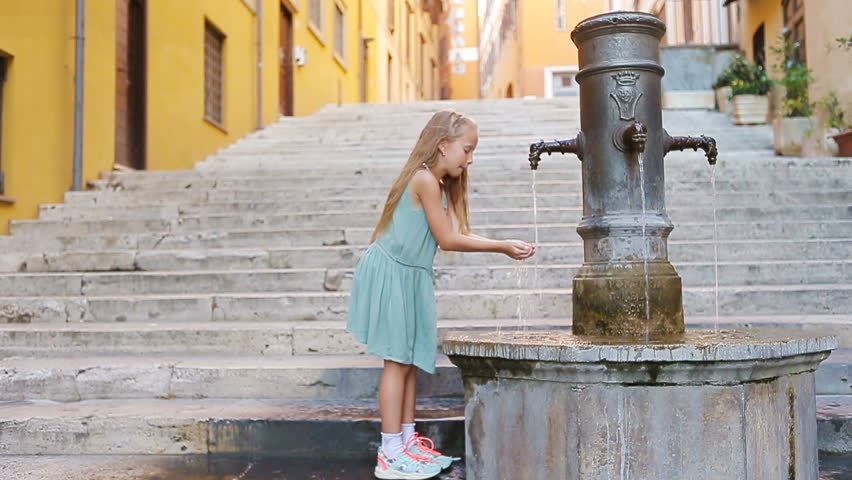
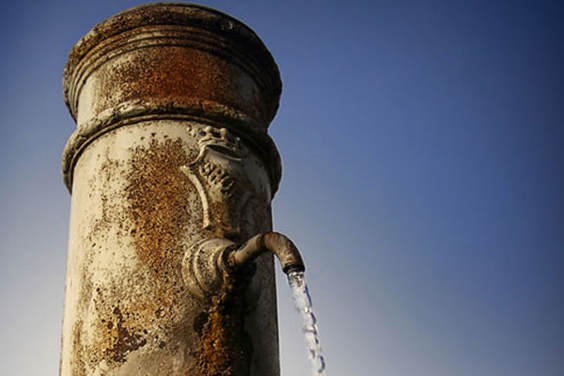
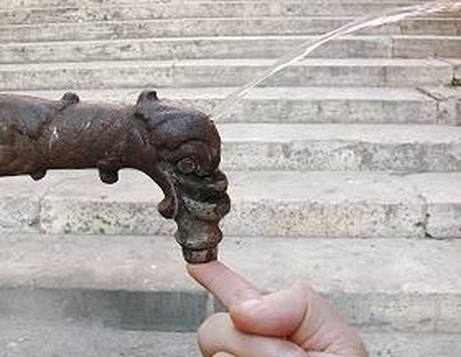
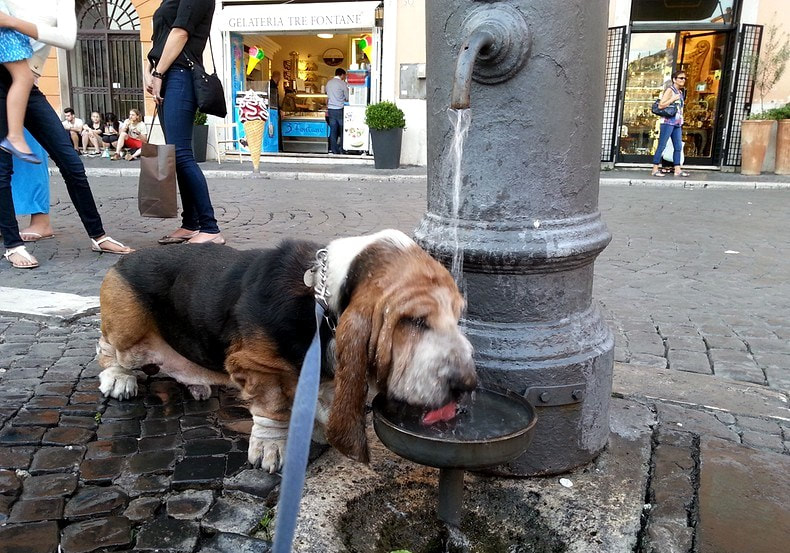
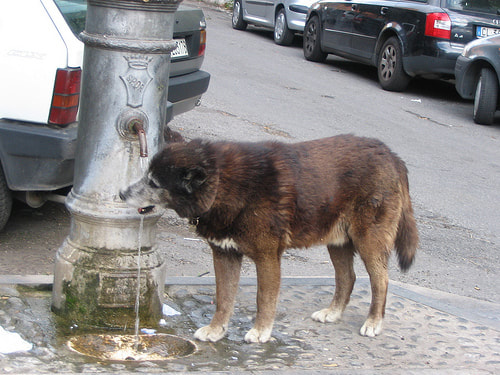
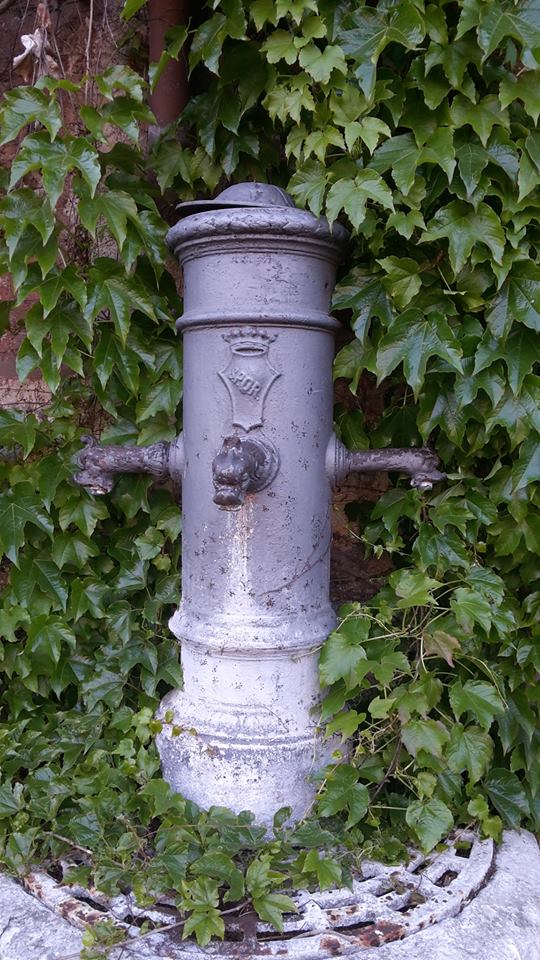
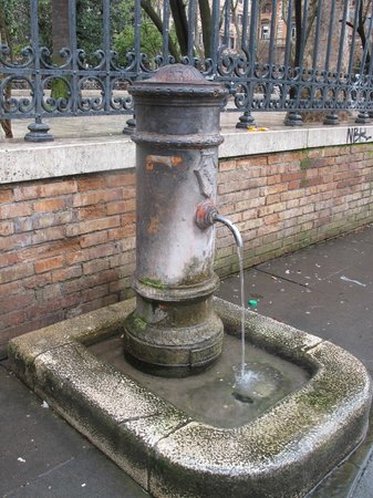
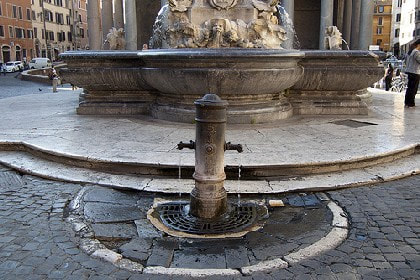
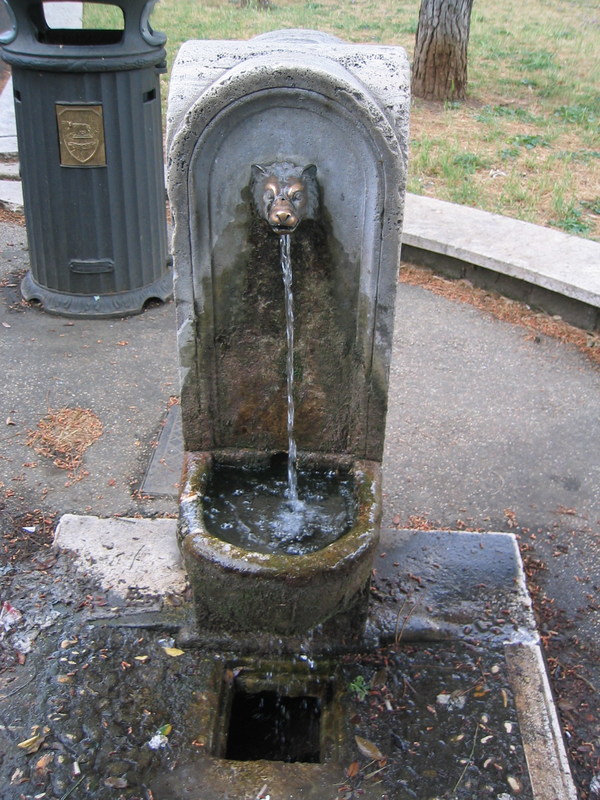
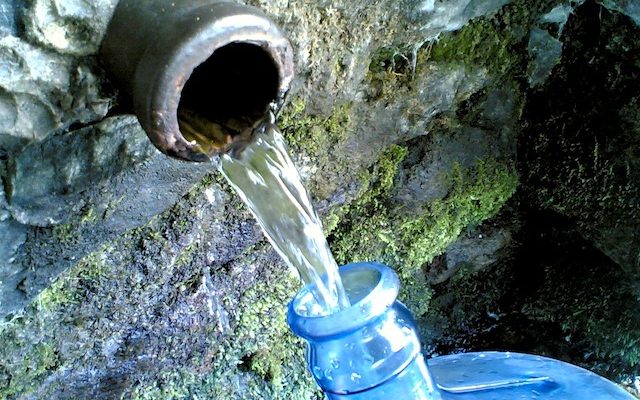
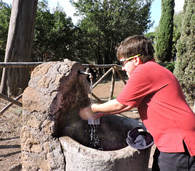
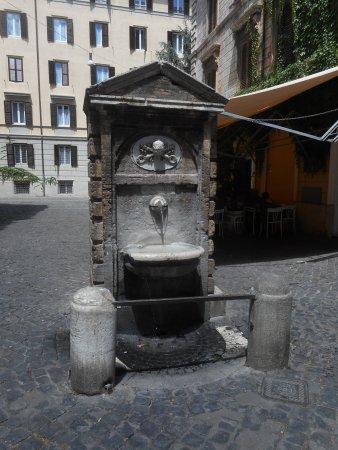
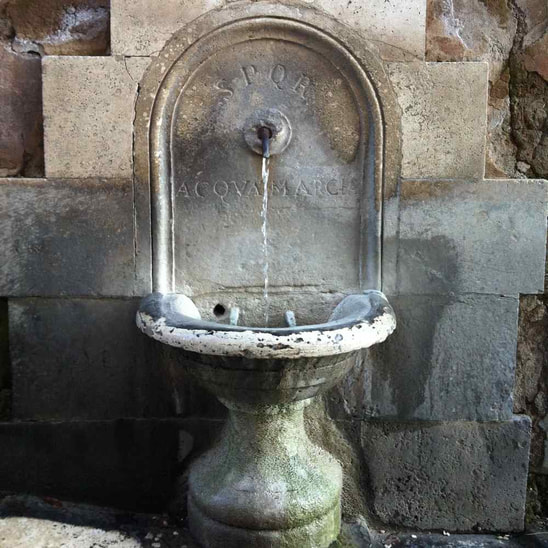
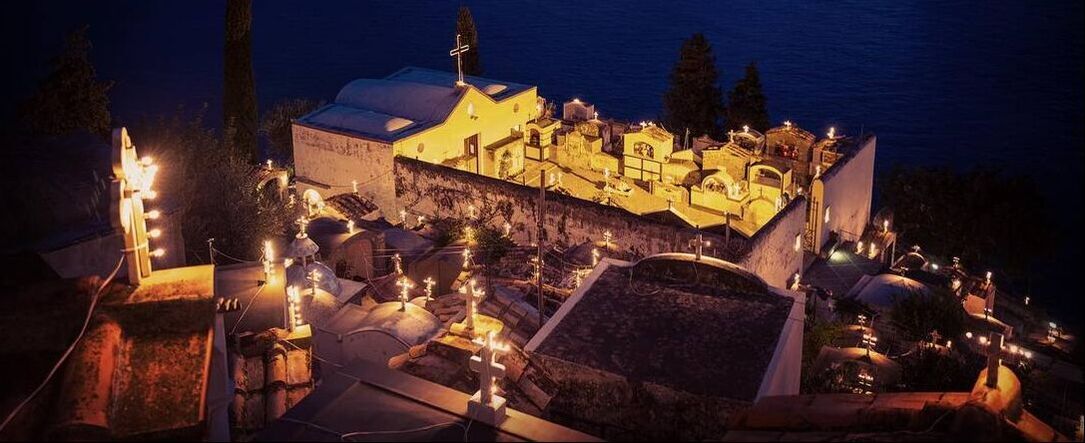
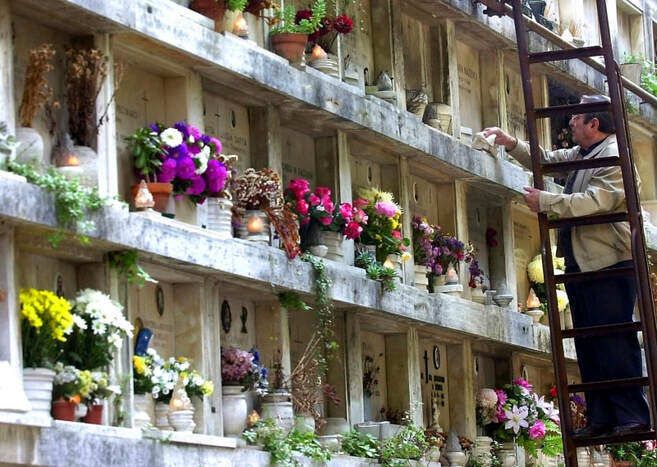

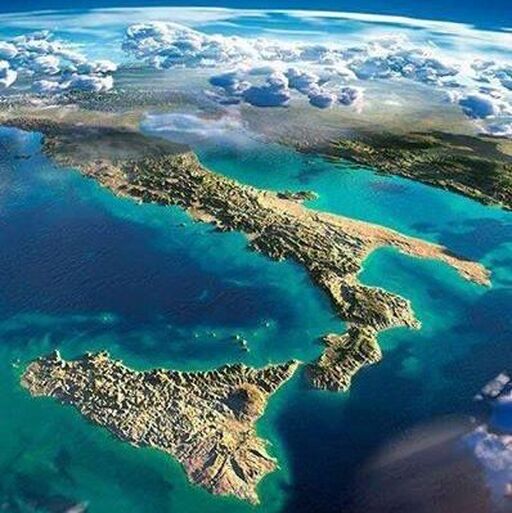
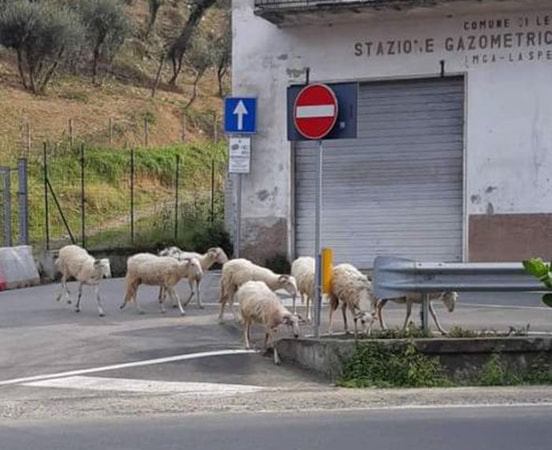
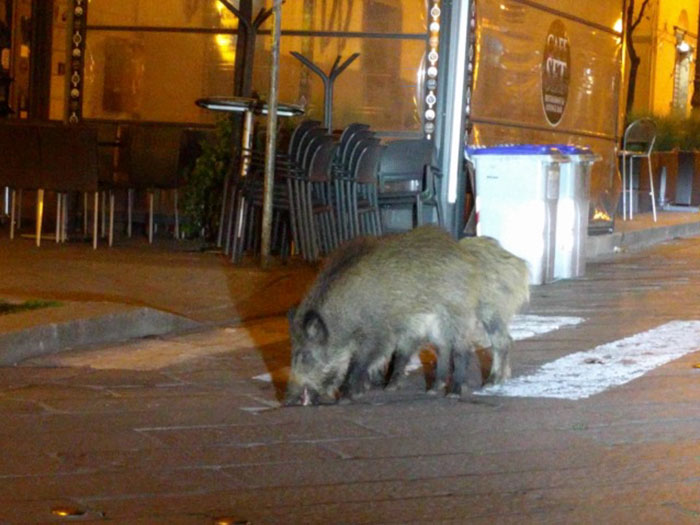
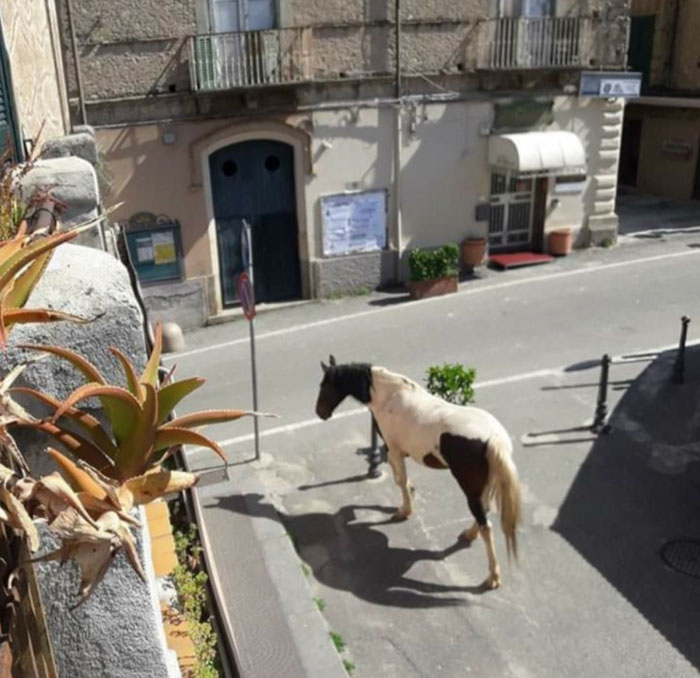
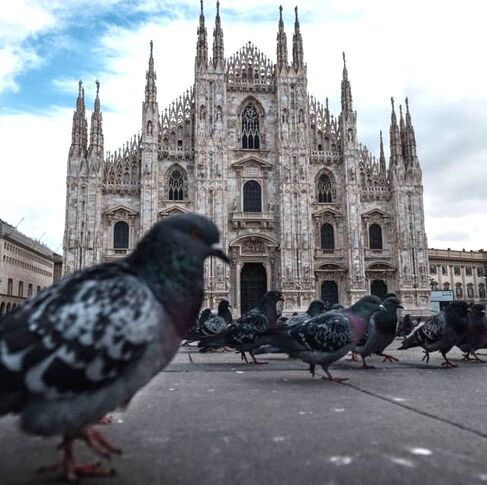
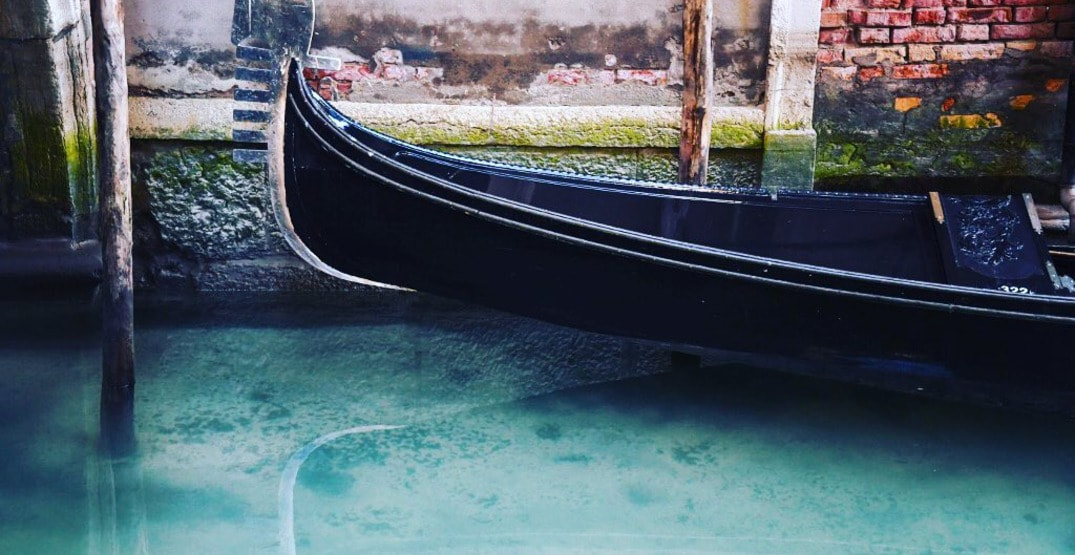
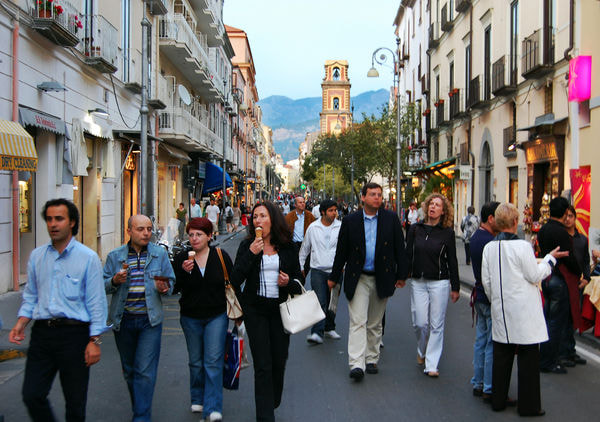
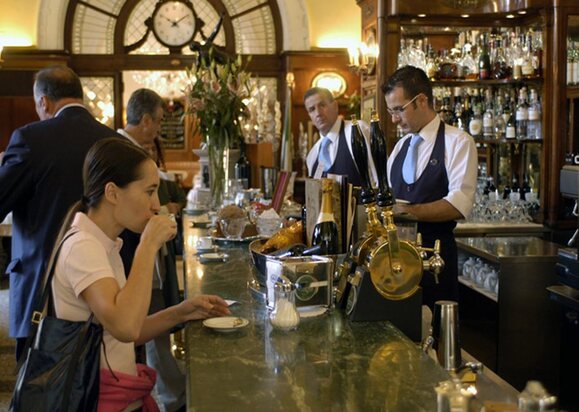
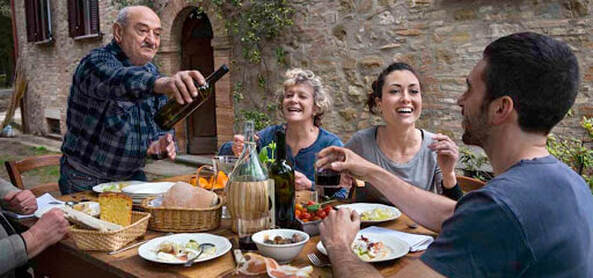
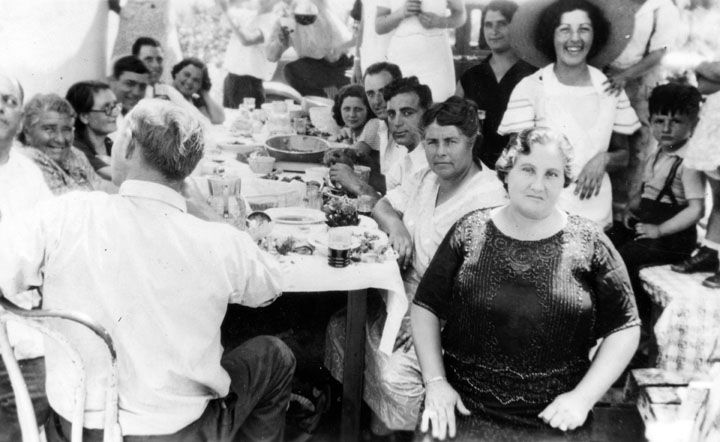
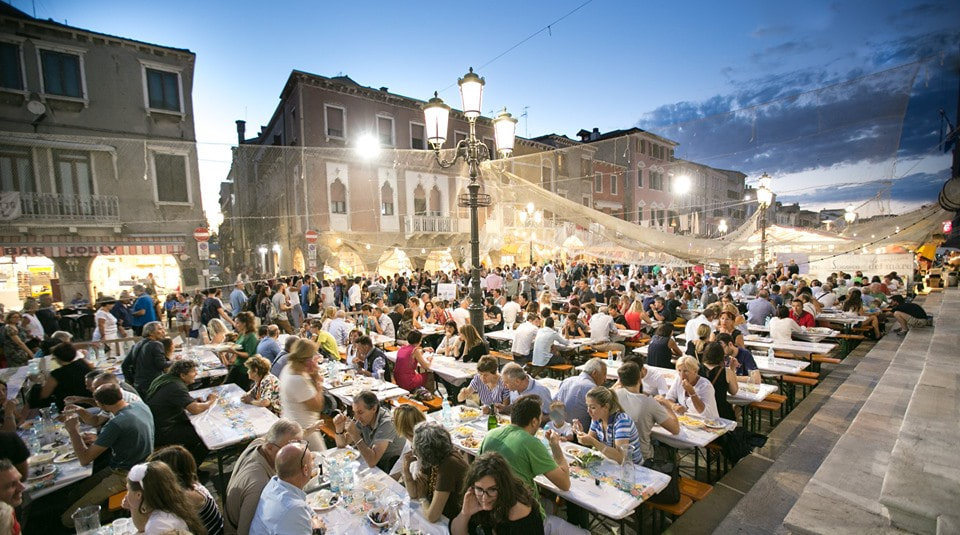
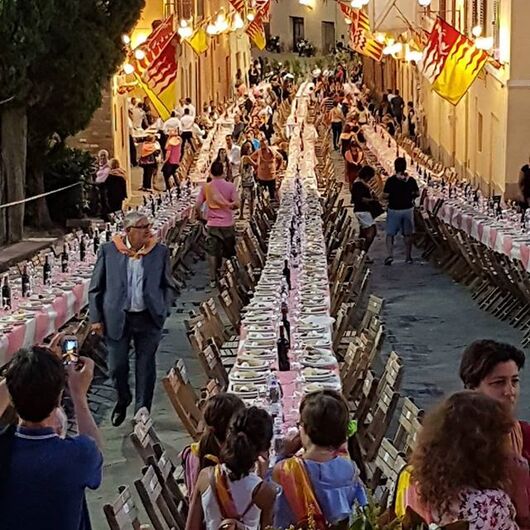
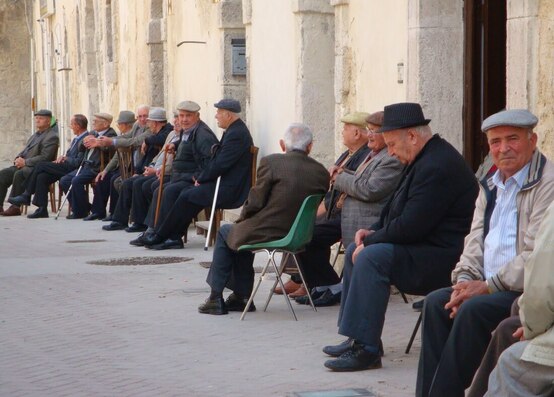
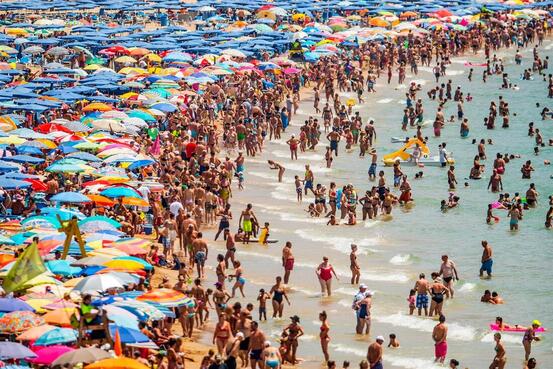
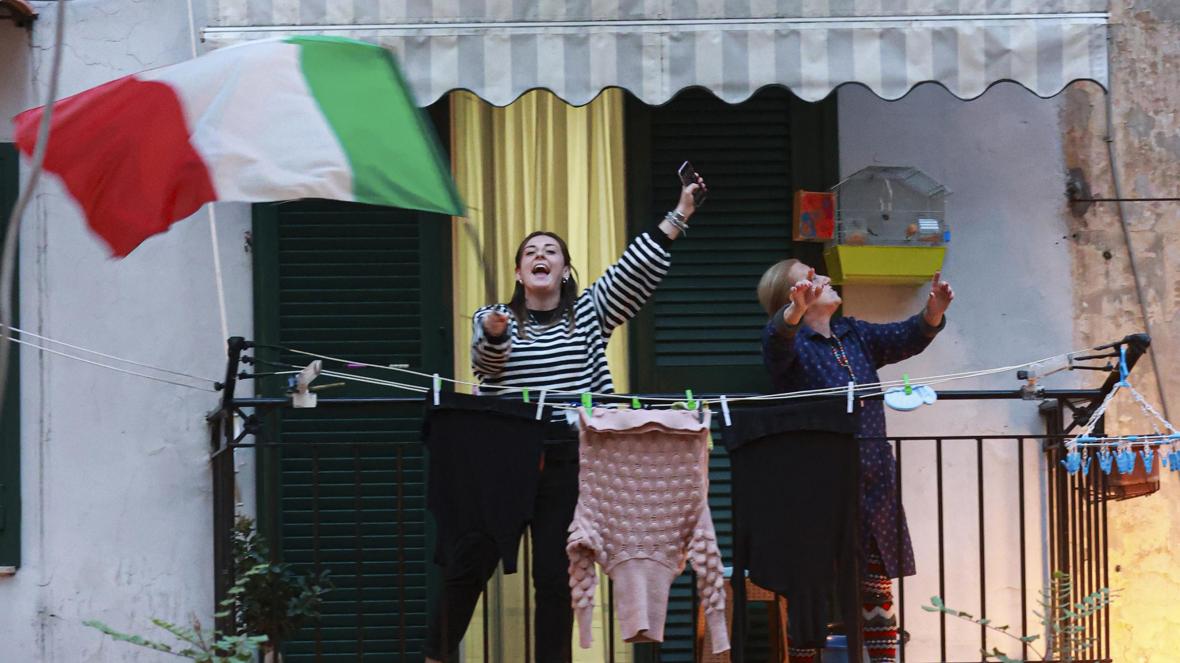

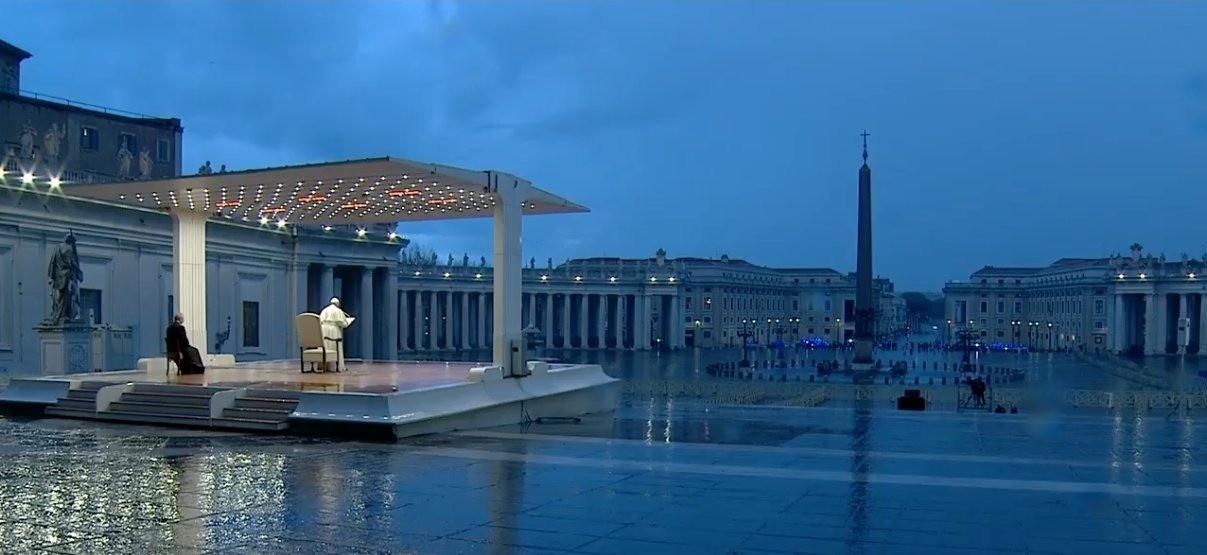
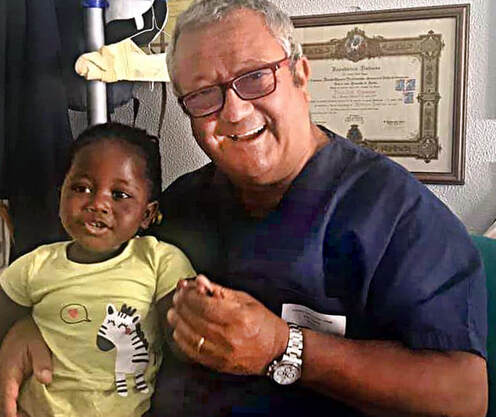
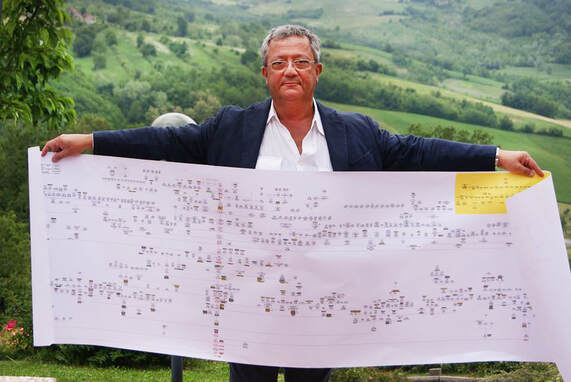
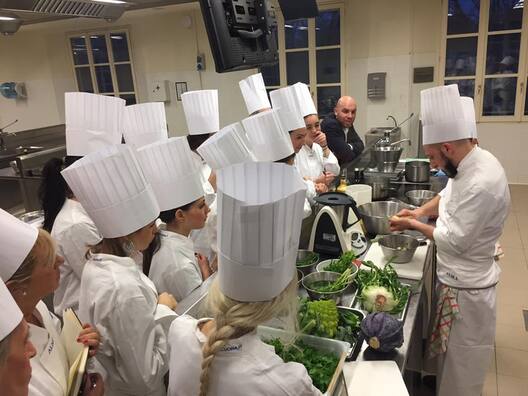
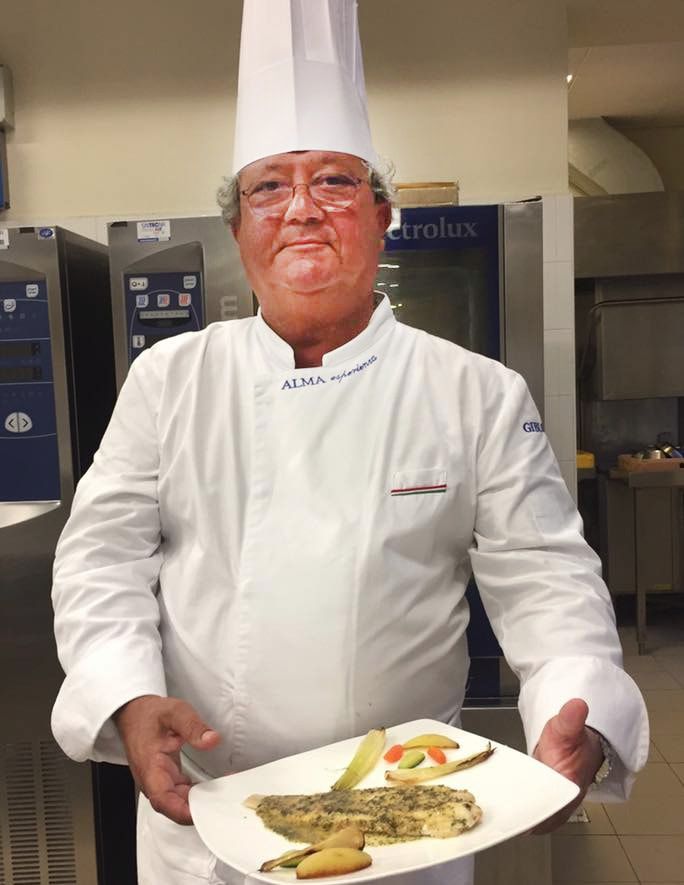

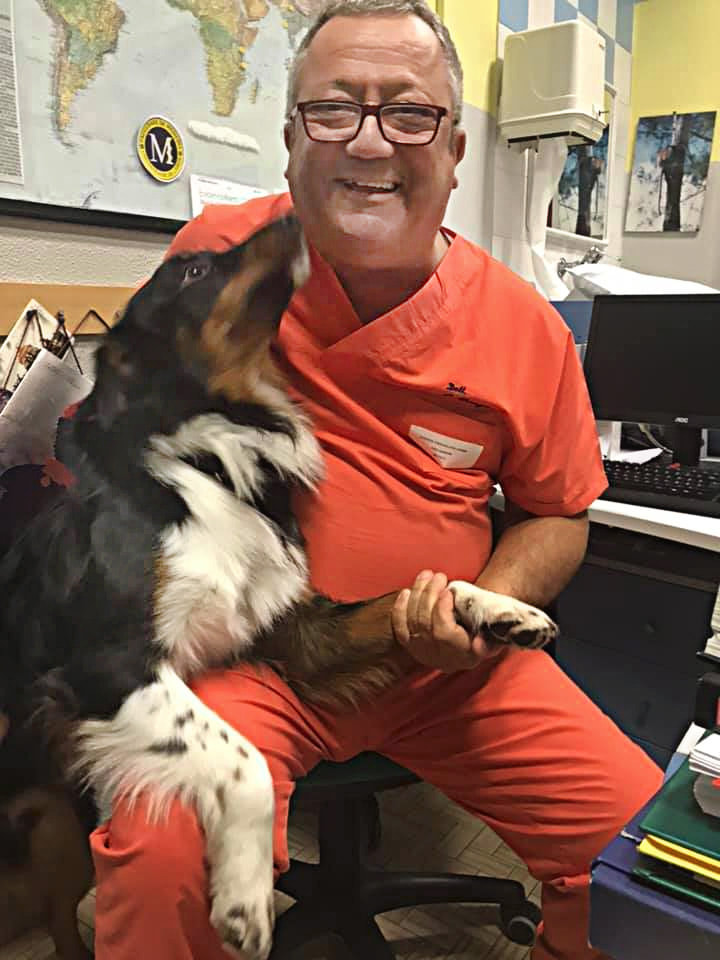
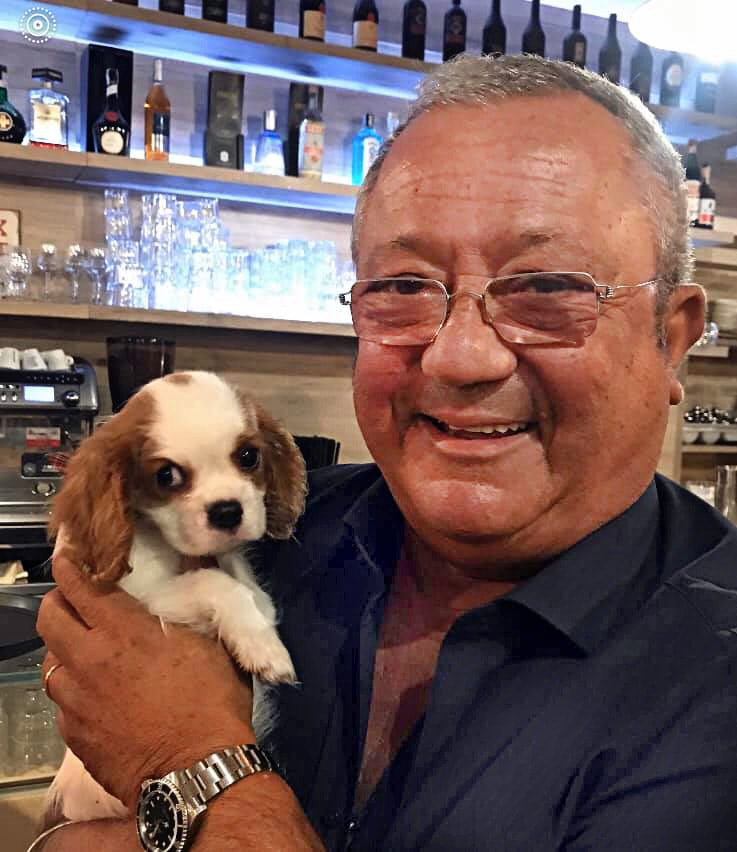

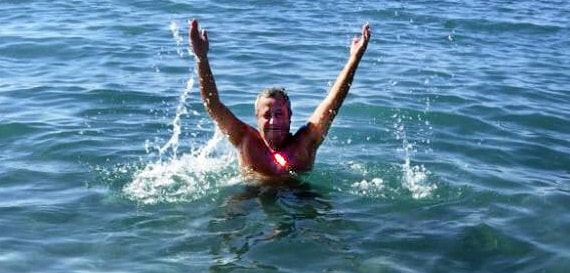
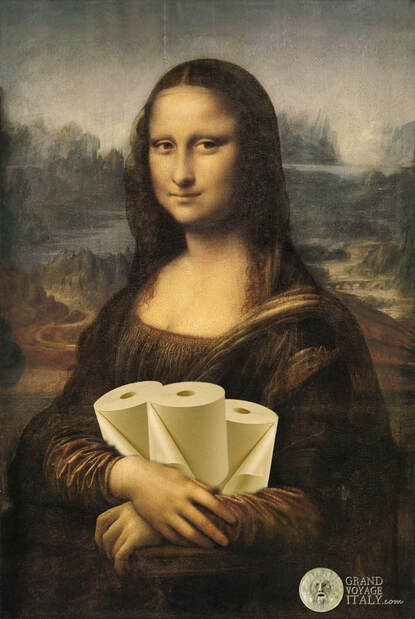

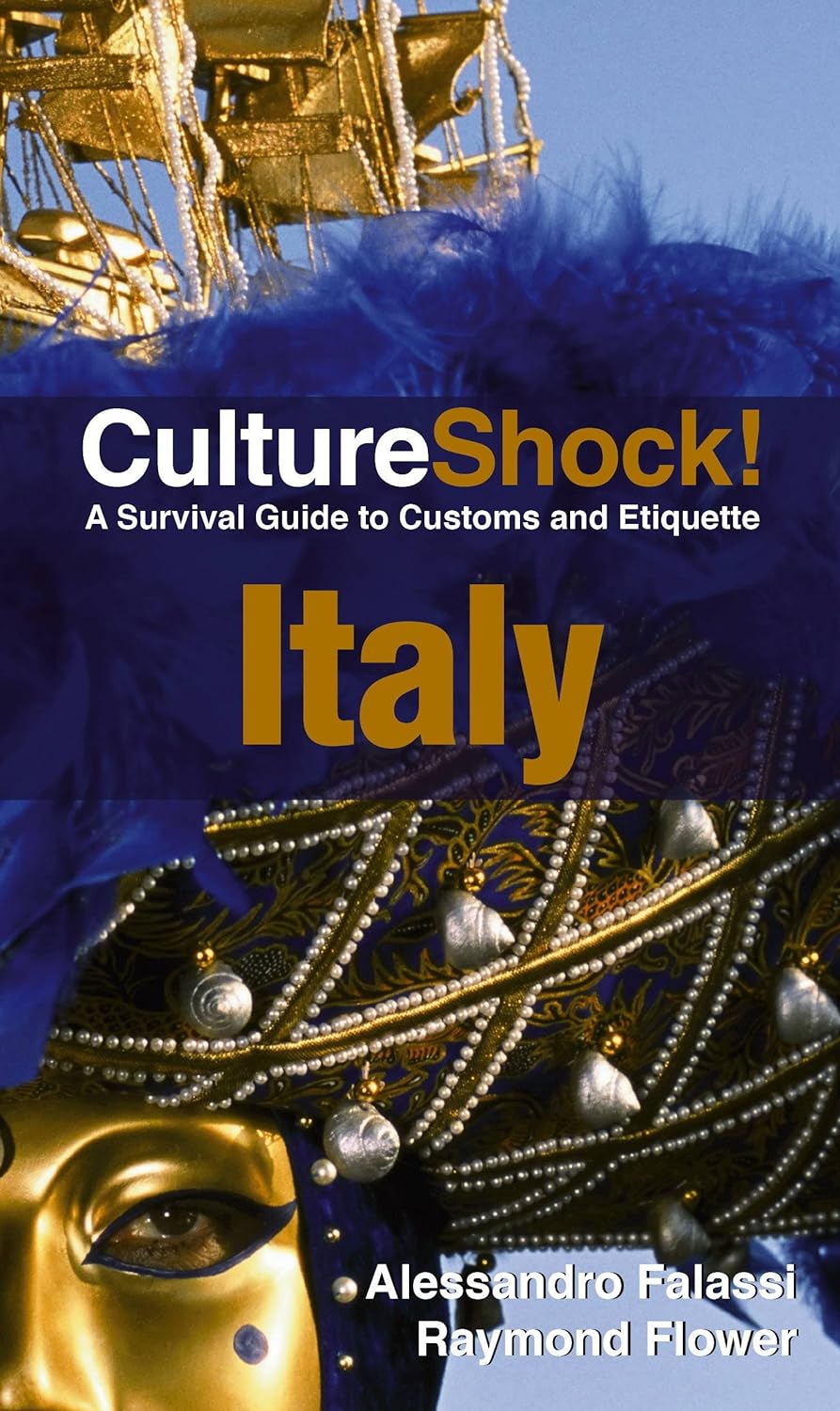
 RSS Feed
RSS Feed

